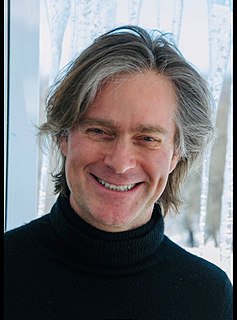A Quote by Amitava Kumar
We learn that our lives find narrative form neither in the tired, familiar slogans of our captains nor in the symmetries of ideological camps, but in the differences that thrive behind settled, more clear-cut divisions.
Related Quotes
The Tories must stop focusing on their ideological obsession with a hard Brexit and their internal party divisions and start focusing on what is best for our country and our economy. Their absurd proposal that the U.K. should become the E.U.'s tariff collector is neither practical nor palatable across the Channel.
...the gross national product does not allow for the health of our children, the quality of their education or the joy of their play. It does not include the beauty of our poetry or the strength of our marriages, the intelligence of our public debate or the integrity of our public officials. It measures neither our wit nor our courage, neither our wisdom nor our learning, neither our compassion nor our devotion to our country, it measures everything in short, except that which makes life worthwhile.
The Gross National Product measures neither our wit nor our courage, neither our wisdom nor our learning, neither our compassion nor our devotion to our country. It measures everything, in short, except that which makes life worthwhile, and it can tell us everything about America - except whether we are proud to be Americans.
While Donald Trump doesn't have any systematic ideology, he does have a narrative, and in that narrative, America was once a great country, it's been weakened by poor leadership, and only he can make it great again by taking over. And that's an image of himself as a strongman, a dictator. It isn't the clear ideology of being a fascist or some other clear-cut ideological figure. Rather, it's a narrative of himself as being unique and all-powerful. He believes it, though I'm sure he's got doubts about it.
Why will our elections be equal? Because neither differences in regard to property (differences partly existing) nor differences of race and nationality will cause any privileges or disadvantages. Women will enjoy the right to elect and be elected equally with men. Our elections will be really equal.
The easier an experience, or the more entrenched, or the more familiar, the fainter our sensation of it becomes. This is true of chocolate and marriages and hometowns and narrative structures. Complexities wane, miracles become unremarkable, and if we're not careful, pretty soon we're gazing out at our lives as if through a burlap sack.
Reality is neither subjective nor objective, neither mind nor matter, neither time nor space. These divisions need somebody to happen to, a conscious separate center. But reality is all and nothing, the totality and the exclusion, the fullness and the emptiness, fully consistent, absolutely paradoxical. You cannot speak about it, you can only lose yourself in it.
The greatest crisis of our lives is neither economic, intellectual, nor even what we usually call religious. It is a crisis of imagination. We get stuck on our paths because we are unable to reimagine our lives differently from what they are right now. We hold on desperately to the status quo, afraid that if we let go, we will be swept away by the torrential undercurrents of our emptiness.
If we suddenly plant our foot, and say, - I will neither eat nor drink nor wear nor touch any food or fabric which I do not know to be innocent, or deal with any person whose whole manner of life is not clear and rational, we shall stand still. Whose is so? Not mine; not thine; not his. But I think we must clear ourselves each one by the interrogation, whether we have earned our bread to-day by the hearty contribution of our energies to the common benefit? and we must not cease to tend to the correction of these flagrant wrongs, by laying one stone aright every day.




































